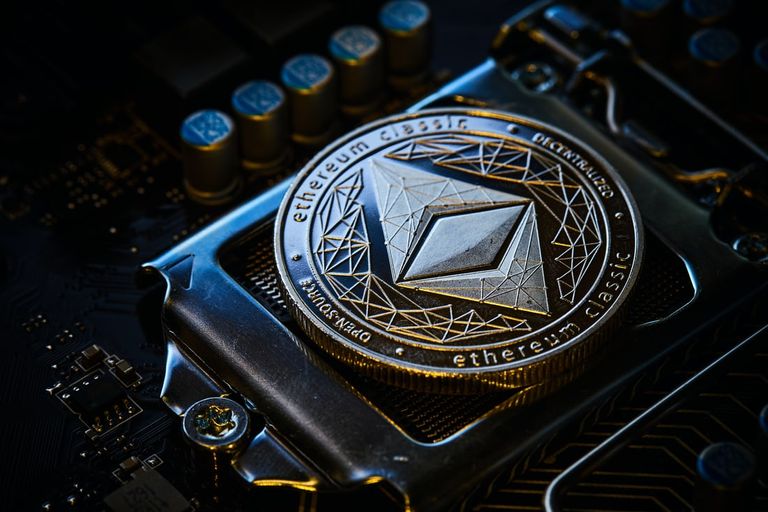Ethereum is a decentralized, open-source blockchain with smart contract functionality. Ether (ETH or Ξ) is the native cryptocurrency of the platform. Among cryptocurrencies, Ether is second only to Bitcoin in market capitalization.

Ethereum:
Original author(s):
Vitalik Buterin
Gavin Wood
Developer(s):
Ethereum Foundation, Hyperledger, Nethermind, OpenEthereum, EthereumJS
Initial release:
30 July 2015; 6 years ago
Stable release;
London / 5 August 2021; 10 months ago
Development status:
Active
Software used:
EVM 1 Bytecode
Written in:
Go, Rust, C#, C++, Java, Python
Operating system:
Cross-platform
Platform:
x86-64, ARM
Size:
991.56 GB (2021-09-30)
Available in:
Multilingual, but primarily English
Type:
Distributed computing
License:
Open-source licenses
Active hosts:
3,481 nodes (2021-09-30)[citation needed]
Website:
ethereum.org

Ethereum was conceived in 2013 by programmer Vitalik Buterin. Additional founders of Ethereum included Gavin Wood, Charles Hoskinson, Anthony Di Iorio and Joseph Lubin. In 2014, development work began and was crowdfunded, and the network went live on 30 July 2015. Ethereum allows anyone to deploy permanent and immutable decentralized applications onto it, with which users can interact. Decentralized finance (DeFi) applications provide a broad array of financial services without the need for typical financial intermediaries like brokerages, exchanges, or banks, such as allowing cryptocurrency users to borrow against their holdings or lend them out for interest. Ethereum also allows users to create and exchange NFTs, which are unique tokens representing ownership of an associated asset or privilege, as recognized by any number of institutions. Additionally, many other cryptocurrencies utilize the ERC-20 token standard on top of the Ethereum blockchain and have utilized the platform for initial coin offerings.

A series of upgrades called Ethereum 2.0 includes a transition to proof of stake and aims to increase transaction throughput by using sharding.